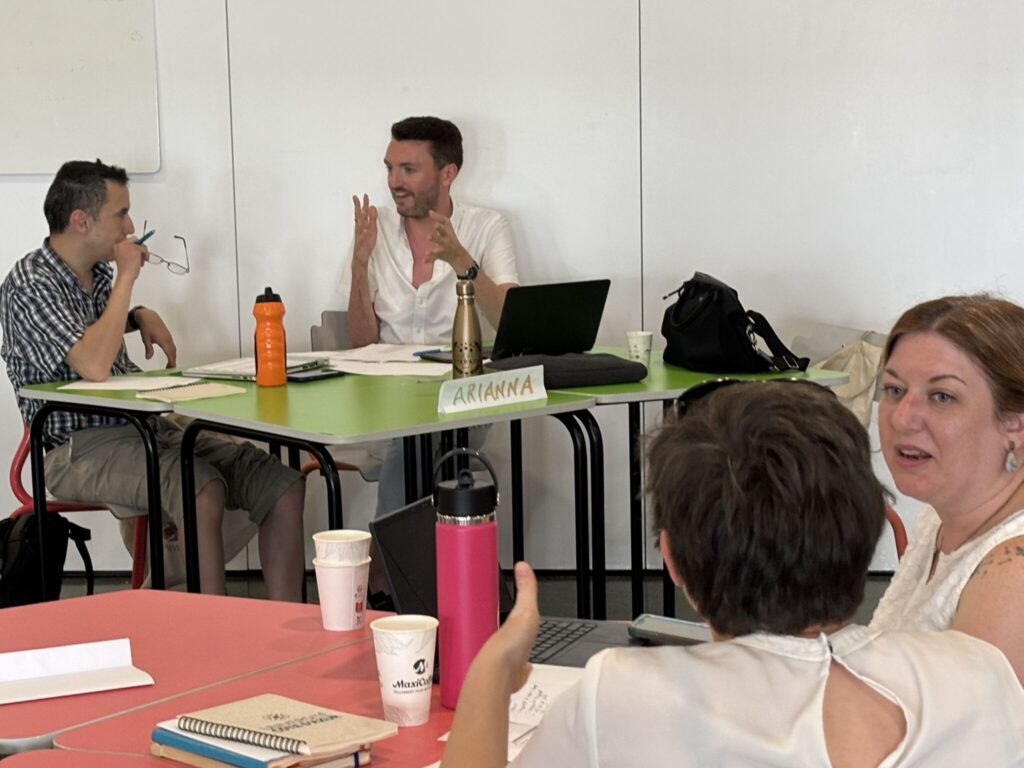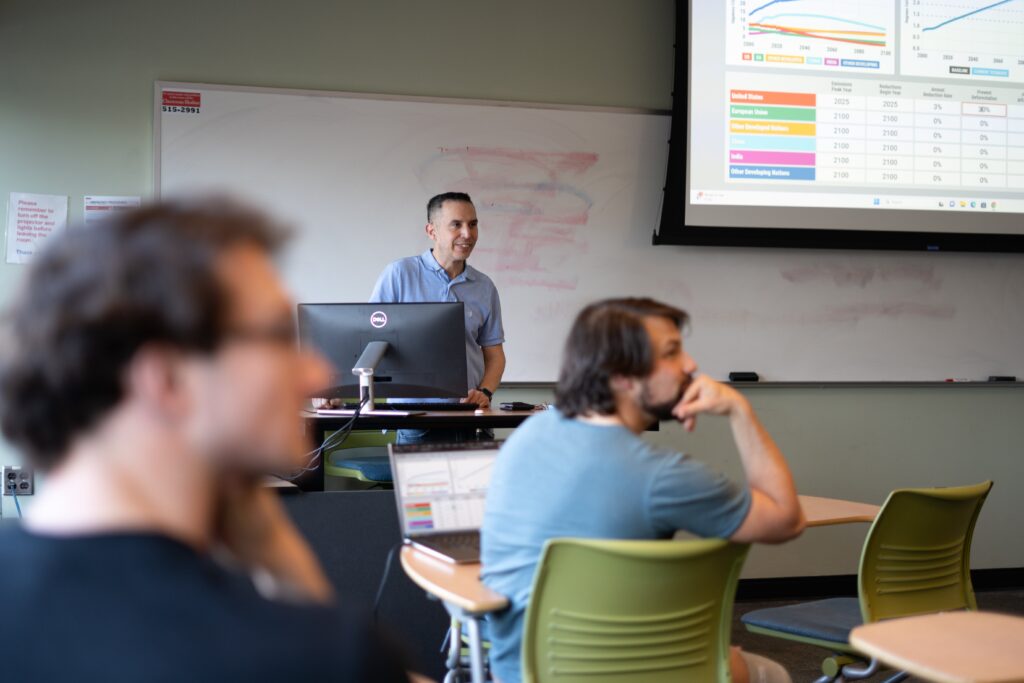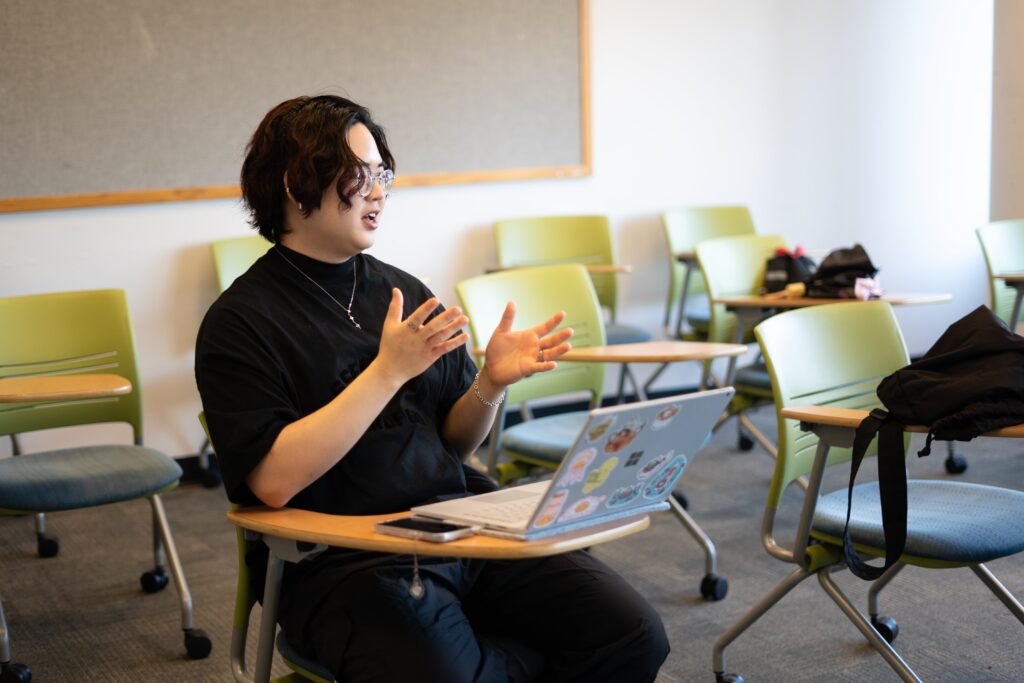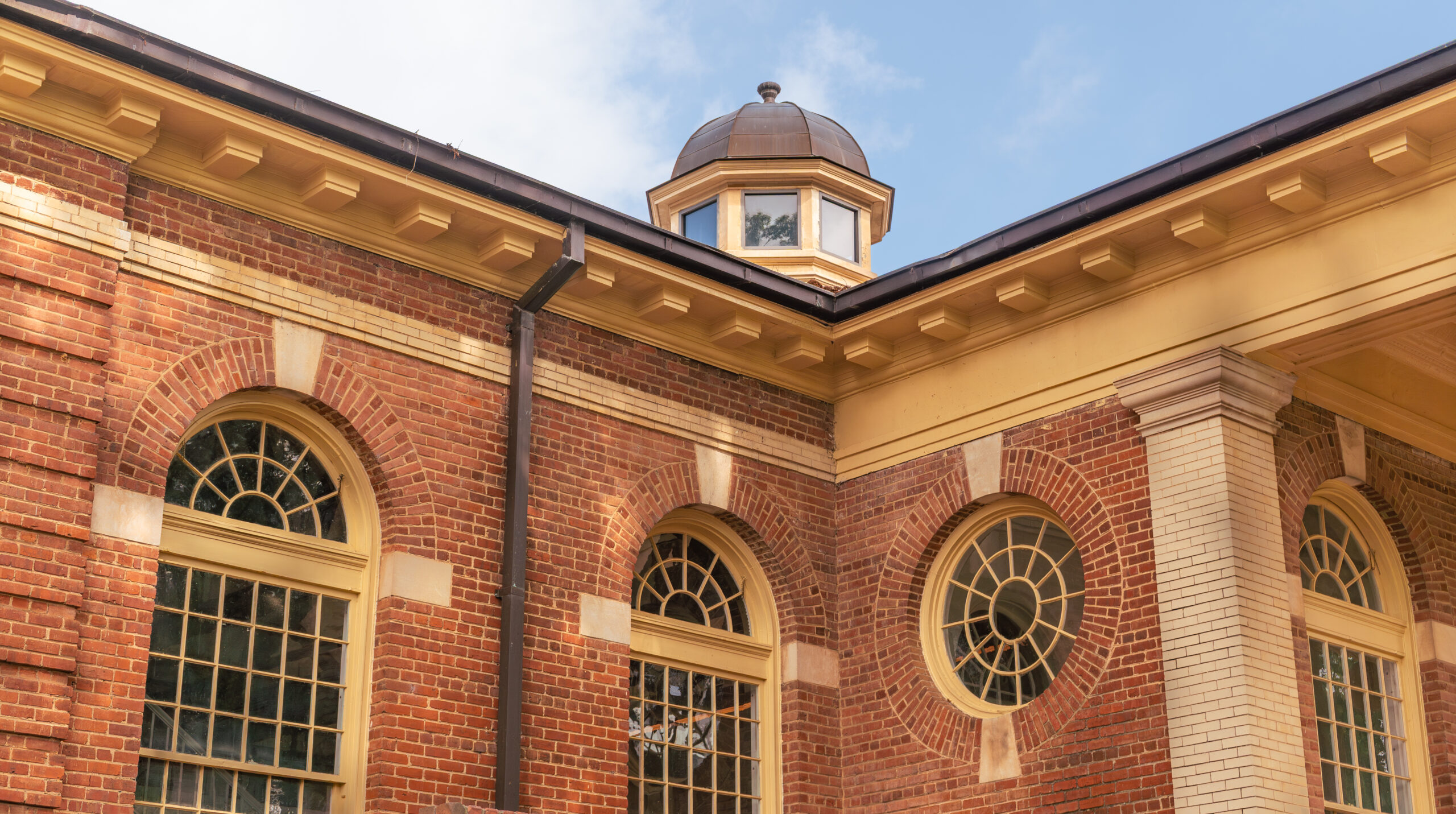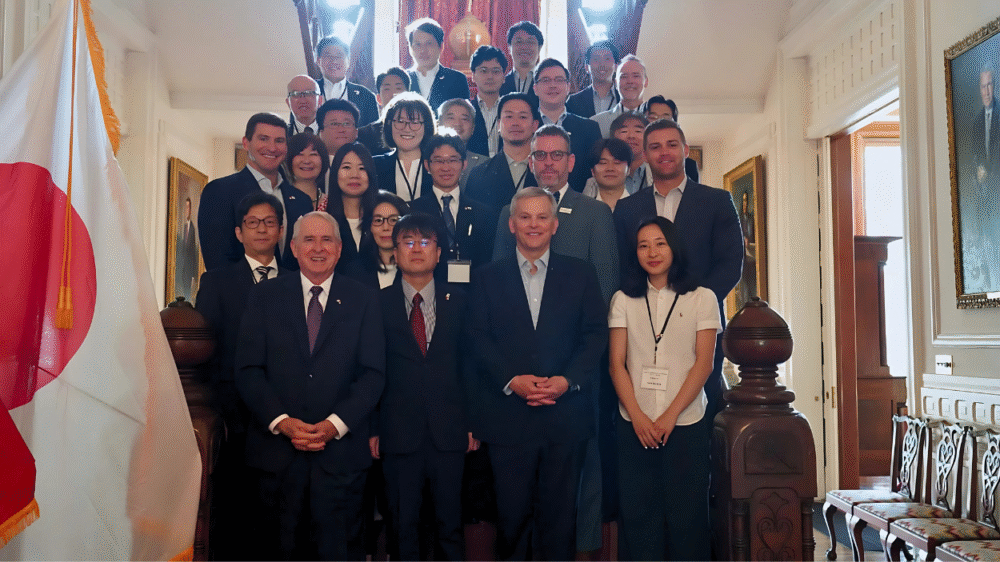Bringing Global Connections to the Classroom
In June, Professor Robert Mera returned from a professional development program in Nice, France. Now, he’s transforming NC State classrooms into learning environments that reach across the globe.
Mera is a professor in NC State’s Department of Marine, Earth and Atmospheric Sciences, as well as the coordinator of the Climate Change and Society program — a one-year master’s program that takes a multidisciplinary approach to climate science and decision-making.
Mera was one of eight faculty members selected to participate in NC State’s 2024-2025 Global Engagement Institute, which culminated in a weeklong workshop at the Université Cote d’Azur (UniCA) in Nice, France. There, NC State and UniCA faculty paired up to explore potential projects and areas of collaboration.
“What we were trying to do is to try to create a global learning environment,” Mera said. “How do we create classes where we can interact with other universities, other classes and other professors? What are some barriers to that? What can we do to expand our own horizons?”
Mera ultimately teamed up with UniCA professor Edward Kennedy. Together, the climate scientist and linguist brainstormed ways to ensure that the message of climate change does not get lost in translation. The pair left with a plan to serve as guest speakers for the other’s class.
“It was very much social science meeting hard science,” Mera said. “It was cool to be paired with someone who wasn’t necessarily from the same background. That was the coolest part, just to get to know someone and do something completely different.”
Given that an area’s history, social context and more all influence its language, it can be challenging for a translated message to reflect the original language’s nuances. That means that, sometimes, the weight of an issue like climate change simply fails to translate in a meaningful way. By incorporating linguistics into climate research, Mera said that students may be able to identify where climate change messaging falls short, which can strengthen future communication and international collaboration efforts.
Mera’s time abroad additionally exposed him to new avenues for publishing research and helped him identify untapped sources of research funding. And, it allowed Mera to garner more global participation in a project called the World Climate Negotiations Simulation, which his students complete every year in his Adaptation to Climate Change class.
The World Climate Negotiations Simulation allows students to take on the role of a country and develop strategies to reduce global greenhouse gas emissions. Using Climate Interactive’s C-ROADS Simulator, students negotiate emission-reduction agreements with one another based on factors like sea level rise, deforestation and a country’s financial and technological needs.
C-ROADS lets students see how much the global temperature is expected to increase based on their decisions. This allows students to rapidly test what kind of policies may be needed to limit a rise in the global temperature, according to Climate Interactive.
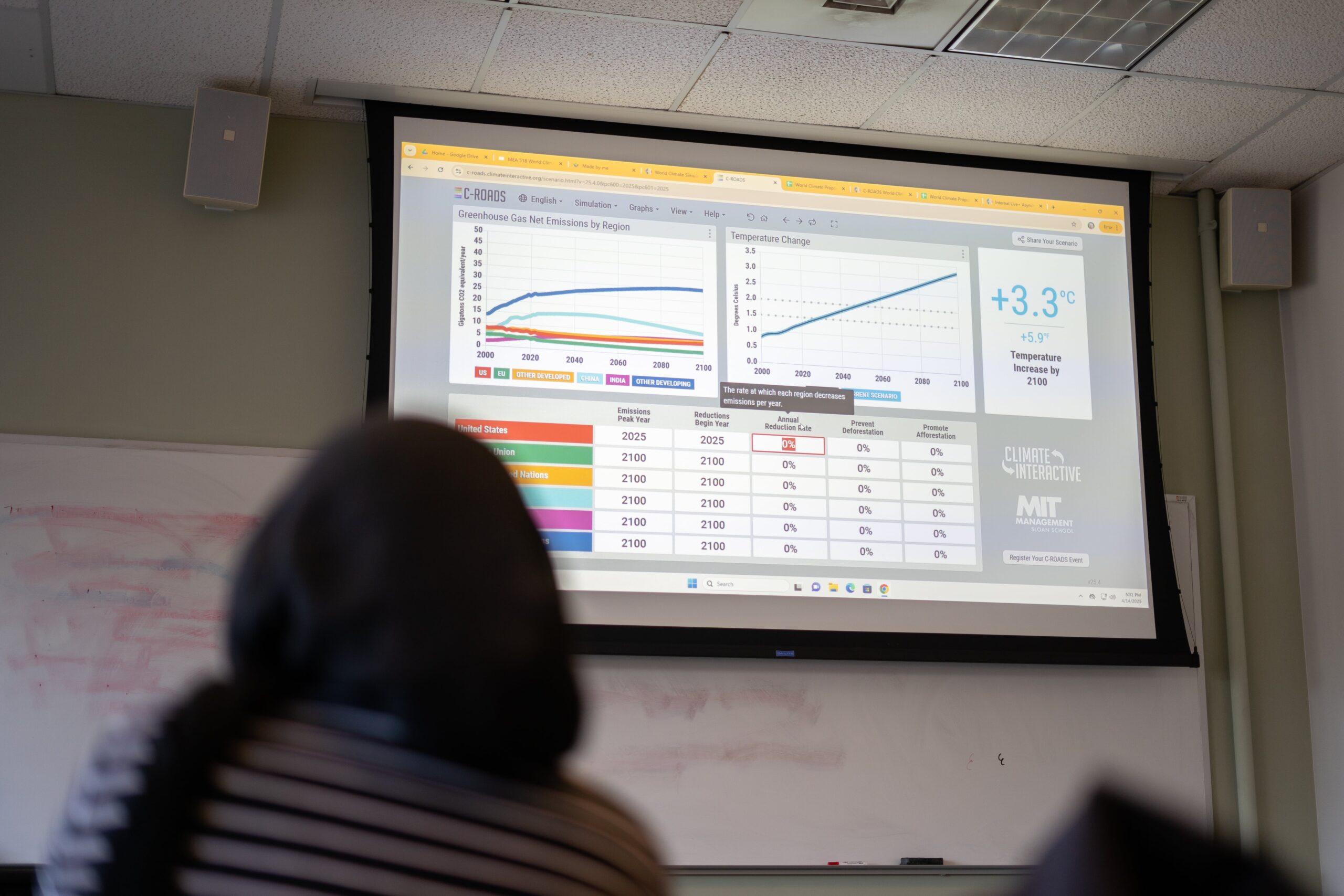
In prior semesters, Mera’s NC State students have digitally collaborated on the simulation with Pakistani students as part of an NC State partnership with four universities for women in Pakistan.
“You really get a feel for how people in different parts of the world view the problem and where they would prefer to see changes,” Mera said. “Next is to recruit more universities to do this sort of thing and make this whole thing global, and the workshop in France really helped me understand how to carry this out.”
When it’s time for Mera’s next group of students to take on the World Climate Negotiations Simulation, they’ll be able to carry it out with UniCA students as collaborators. Getting to build those connections through the Global Engagement Institute was a one-of-a-kind opportunity for the Climate Change and Society program, Mera said.
“I want to make the program more special,” Mera said. “I want to make it more global. That’s the whole idea — you should try to bring more people from around the world to tackle the same kind of issues from not just the scientific perspective, but from every angle. So, we have people from many different backgrounds in our program. I think that’s the only way to address climate change, is if there’s all of us.”
This post was originally published in Department of Marine, Earth, and Atmospheric Sciences.
- Categories:
